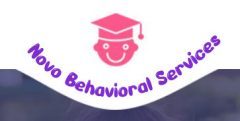Incorporating movement into social skills learning activities can greatly enhance engagement and effectiveness. Interactive exercises involving physical movement encourage active participation, facilitating deeper connections and understanding of social cues. Role-playing scenarios with movement elements allow individuals to practice social interactions in a dynamic and realistic manner, promoting empathy, perspective-taking, and communication skills. Group activities that involve coordinated movement foster teamwork, cooperation, and conflict resolution abilities. Additionally, movement-based games and challenges provide opportunities for individuals to develop self-regulation, impulse control, and emotional awareness within a social context. By integrating movement into social skills learning, educators and therapists create enriched learning experiences that cater to diverse learning styles and promote holistic development. Ultimately, incorporating movement into social skills instruction not only makes learning more enjoyable but also reinforces key concepts and facilitates the transfer of skills into real-world social situations.
